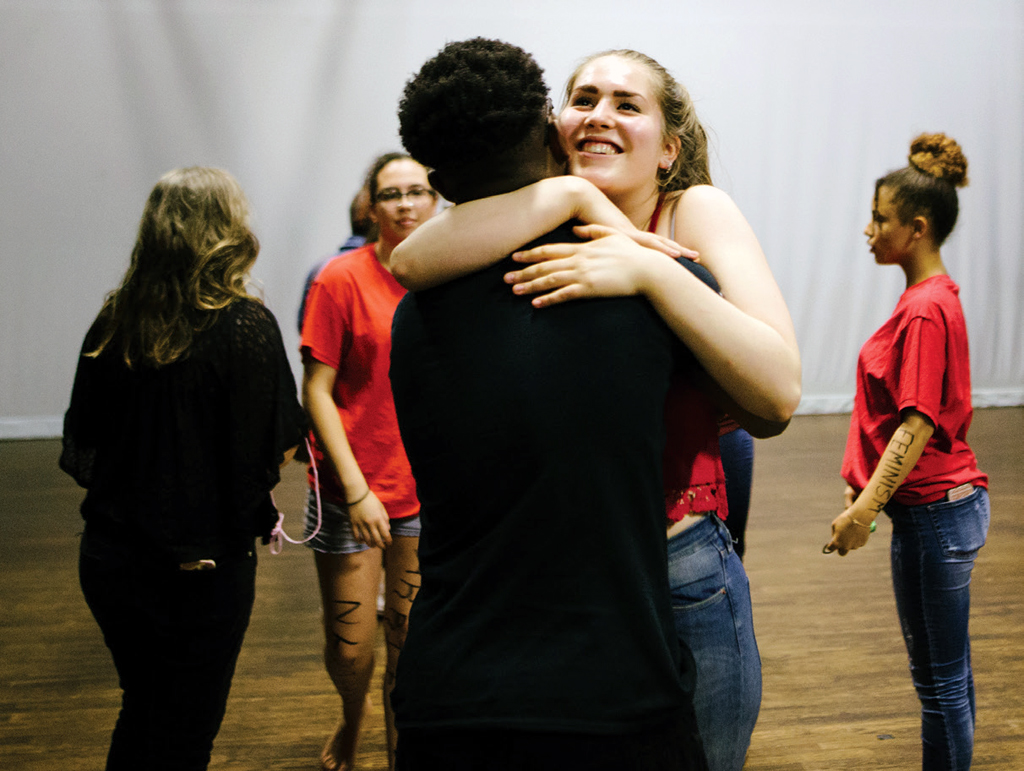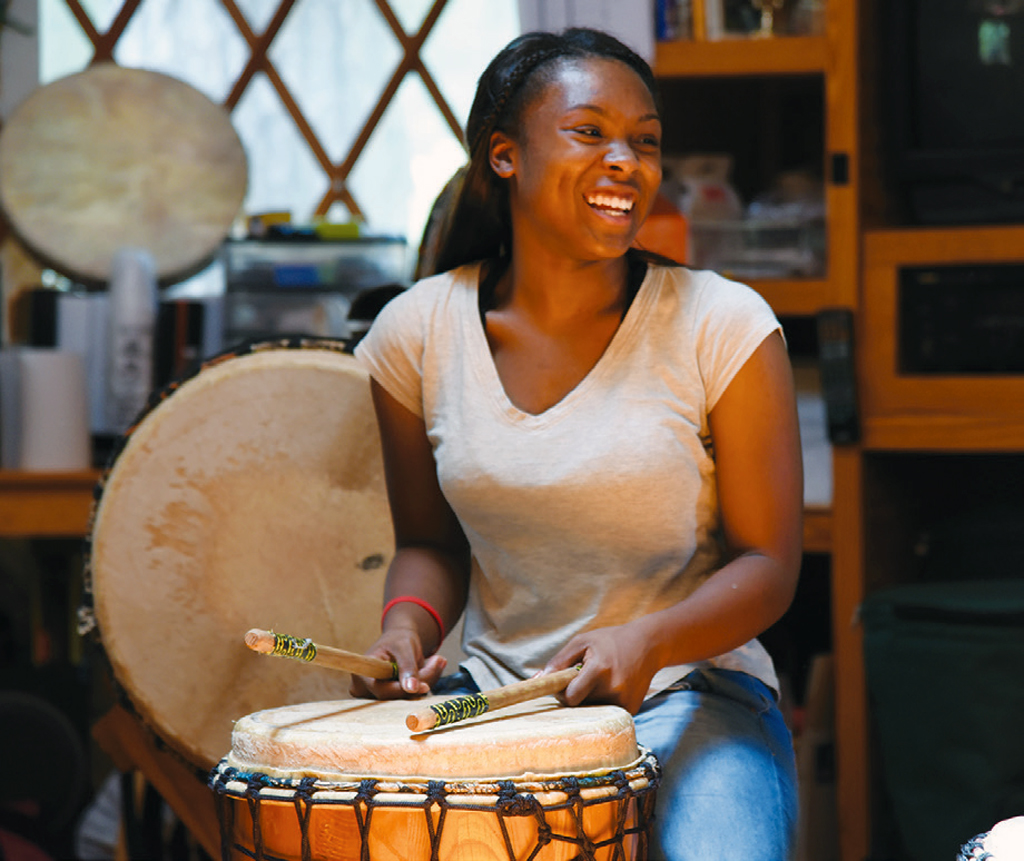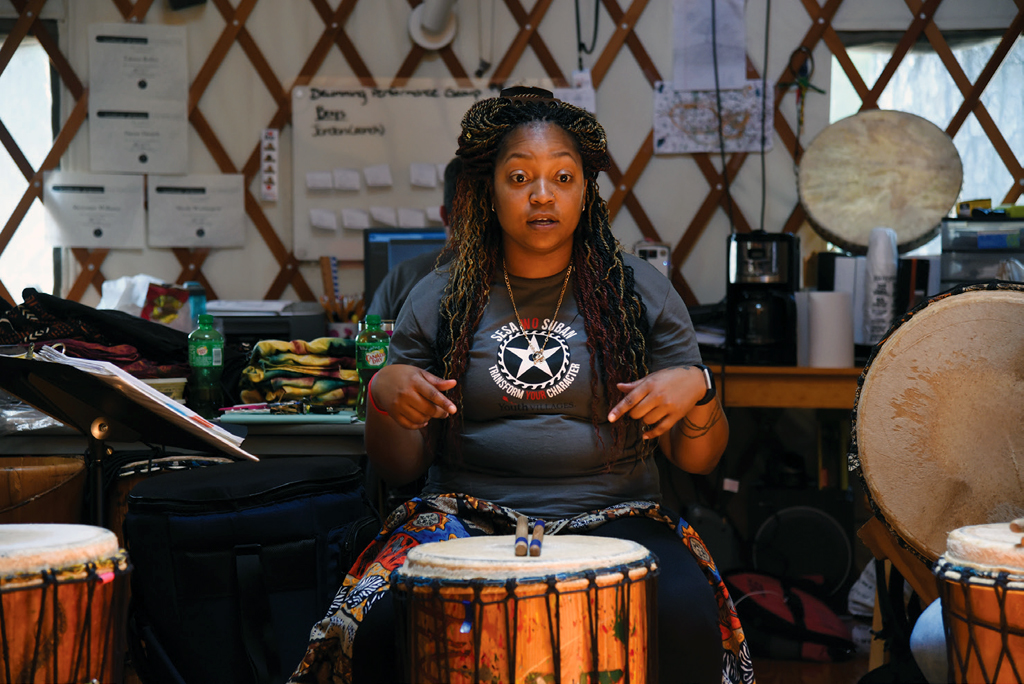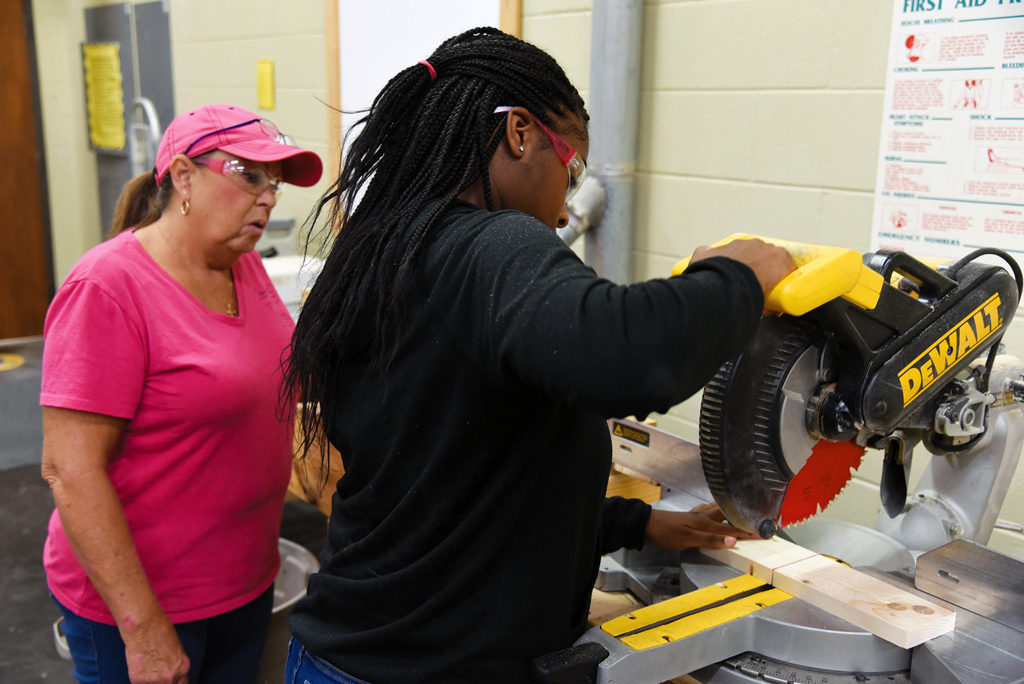Excitement was in the air the morning of the big dress rehearsal at 7 Stages Theatre in Atlanta. Mentors, choreographers, young artists and teenage stage designers prepared for a showcase featuring the latest collaboration between Youth Creates and Moving in the Spirit.
 While Youth Creates nurtures teens in theatrical pursuits, Moving in the Spirit fosters expression through dance.
While Youth Creates nurtures teens in theatrical pursuits, Moving in the Spirit fosters expression through dance.
“A lot of times kids come in and they have all of this aggression pent up from stuff they’ve been dealing with at school or at home,” said Jessica Scudder, Moving in the Spirit liaison and mentor. “It’s good to have that physical outlet — that movement, the opportunity to let it out when you don’t have the words.”
“[Dancing] trained me mentally to be patient,” said Azariah Richardson, 14. “[Dance] has taught me how to adapt to tough situations, not to shy away from a challenge.”
“We believe in dance as a vehicle for youth development,” said Foluke Beveridge, communication coordinator and teaching artist with Moving in the Spirit. “They build confidence in their voices and a willingness to take risks through input in choreography. They learn teamwork and respect for self and others from partnering. And they do all of these things in a safe, supportive environment where they feel a sense of belonging.”

“Art — it is necessary for our healing and our ability to connect … It is a way to really bridge the gap,” said 7 Stages Theatre director and Youth Creates founder Heidi Howard in regard to artistic, political and social expression. “Artists can really be leaders.” Both organizations instill teamwork and social awareness, teaching teens to maximize their artistic impact when paying homage to a larger cause.
Therapeutic drumming is an asset to the Youth Villages Inner Harbour Campus, a juvenile residential mental health treatment facility on 1,200 acres just outside of Atlanta in Douglasville, Georgia. Landing a hard slam against a tight drumhead is how some young residents battle inner turmoil or uncertainty. The staff say these drum circles are fun but disciplined “safe spaces” where students can be themselves free of judgment and self-doubt.

Jahnia Sears, 15, says drumming improved her confidence, her frustration-management skills and her ability to compose herself in a sometimes hectic group setting. “People like to hit drums when the instructor is talking and that’s my biggest trigger, so it’s hard for me not to (snap at someone for interrupting) … I have to realize that we’re all different.”
Learning traditional west African rhythm, young people address emotions — such as anger — and develop coping skills. “A lot of our kids, who have been through sexual and physical trauma, are disconnected emotionally from their bodies [for survival reasons],” said therapist Tom Harris, who brought drum therapy to Inner Harbour Campus in the ’90s. “When they start drumming, which is a very physical thing … they start reconnecting with their bodies emotionally in a powerful and positive way.”

Lead therapeutic drumming instructor Tatiana Rolles teaches her students rhythm while also addressing their “focus, hand-eye coordination, frustration tolerance … impulse control,” said Rolles. “We have kids, as I’m talking, who would like to tap on the drums — so I’m focusing on all of that as I’m teaching the kids the rhythm.”
“I say anything a guy can do, a girl can do, and it’s just as [conceivable] for us to be out there building and managing … with the men,” said 14-year-old Jas’Mine Collins, responding to the notion that construction jobs are only for men. Collins (bottom right) was one of the 15 young women spending the day building wooden memory boxes at the Mentoring A Girl In Construction, Inc. Camp — or M.A.G.I.C.— at Gwinnett Technical College in Lawrenceville, Georgia.

Simone Risco (with the saw), 16, wants to be a civil engineer, and she returned to M.A.G.I.C. for a second year. Interested in electric work and welding, Risco prefers innovative hands-on learning to lectures. “I have to experience something,” Risco said. “I like to do things; I just can’t sit (in a classroom.)” “They come in on Monday, and most of them have not ever touched a power tool — and by the end of the week, we actually see the light bulbs coming on,” said Renee Conner, national executive director of M.A.G.I.C. (in pink shirt). “We see the glow in their eyes (and the realization that) they might, too, do this as a professional career.”
M.A.G.I.C. is a weeklong day camp for teen girls and young women interested in construction, building and heavy machinery. The organization offers girls across the nation firsthand practice in electrical work, carpentry and welding under the tutelage of experienced female construction workers and engineers.
Regardless of whether the girls actually pursue a career in engineering or construction, the youth program seeks to empower young women by boosting their confidence and nurturing their critical-thinking skills through innovative assignments that require brain power and a steady hand.

























